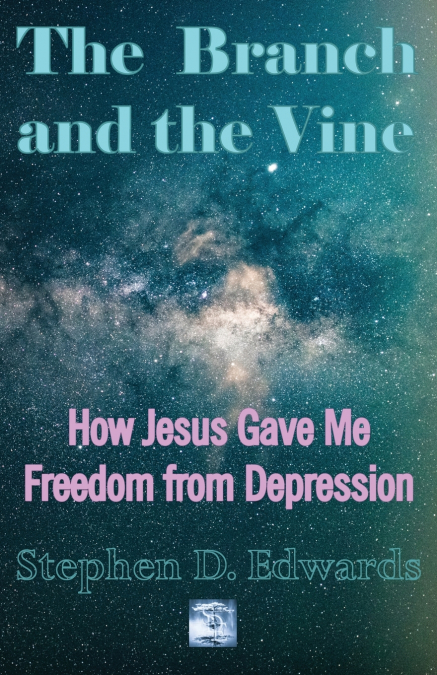
 Librería Perelló (Valencia)
Librería Perelló (Valencia)
 Librería Aciertas (Toledo)
Librería Aciertas (Toledo)
 El AlmaZen del Alquimista (Sevilla)
El AlmaZen del Alquimista (Sevilla)
 Librería Elías (Asturias)
Librería Elías (Asturias)
 Librería Kolima (Madrid)
Librería Kolima (Madrid)
 Donde los libros
Donde los libros
 Librería Proteo (Málaga)
Librería Proteo (Málaga)
Author Stephen D. Edwards became depressed as a young adult. He suffered insomnia. He lost interest in many pleasures. He was constantly tired and restless. He felt worthless and had many suicidal thoughts. There were many moments when he thought depression had gone away, but that was all circumstantial. With little hope of finding healing or freedom, he reached a crossroads. Then he accepted Jesus as my Lord and Savior. Soon after that he started recovery for an addiction which also plagued him for most of his adult life. After gaining freedom from the addiction, he remained depressed. Having married five years before that crossroads moment, he wanted to better provide for his family, so he took on a sales job which entailed pitching a product door-to-door. With little success, he found himself thinking he was a failure and made plans to end his life. A few days after this decision, God moved to evict an evil spirit and transformed his thinking into a more positive outlook on life. A year later he found myself free from depression, without psychological counseling or drug therapy. The Branch and the Vine is a milestone marking the end of darkness with clearer skies ahead. Edwards believes God called him to share his story because of the hope in it, and he believes God wanted him to include some crucial chapters to show how the readers can have the freedom He gave him. He noticed in his research on the subject of depression and other mental illnesses that while many of the memoirs available tell a personal story of hope that healing is possible, the authors don’t explain or illustrate how that healing came about. Edwards believes that highlighting a problem without presenting a solution is a lot like complaining. The Branch and the Vine is written with a sincere clarity and sets out principles that-if applied-can bring freedom from the darkness that plagues so many people if the desire to put depression into the past is honest, even for non-Christians. Now there are no guarantees; however, Edwards has had friends say that their depressive states through the application of the principles in this book even in its early draft form.